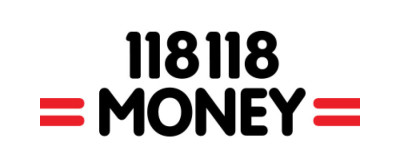Loans for bad credit
A personal loan is a type of unsecured loan that individuals borrow from a financial institution, such as a bank, credit union, or online lender, for personal use.
Unlike secured loans, like auto loans or mortgages, personal loans do not require collateral, such as a car or house, to secure the loan. Instead, lenders evaluate the borrower's creditworthiness, income, and other financial factors to determine eligibility and loan terms.
Best Bad Credit History offers

Universal Credit’s starting rates are high compared to other bad-credit lenders, so compare loan offers before you apply.
Pros and cons

Abound offers flexible UK loans for various needs like debt consolidation and home improvement, featuring easy applications and quick funding.
Pros and cons

Lendable assesses financial health beyond credit scores, aiming to make credit accessible for those with imperfect credit histories.
Pros and cons

Crafted for individuals overcoming credit challenges, Everyday Loans offers unsecured personal loans in the UK.
Pros and cons

1Plus1 Loans, founded in 2013, offers unsecured personal loans from £1,000 to £10,000, prioritizing affordability for borrowers with complex credit histories.
Pros and cons

118 118 Money provides unsecured loans for imperfect credit, emphasizing personal repayment capacity. Offers include diverse loans with a fixed 49.9% APR.
Pros and cons

Bamboo, a UK lender, excels in customer service, offering diverse loans. They've won awards for fair lending and ethical practices, serving various customers responsibly under strict regulation.
Pros and cons

Vanquis Bank prioritizes customer satisfaction with diverse financial solutions, including credit building services, flexible personal loans, and quick accessibility.
Pros and cons
-list.jpg)
Norwich Trust distinguishes itself by offering diverse, reliable loans, especially assisting individuals with poor credit histories through long-term solutions.
Pros and cons

JN Bank offers versatile loans, including unsecured options for homeowners, debt consolidation, secured loans, and more. Choose wisely based on needs and eligibility.
Pros and cons
How to compare the best bad credit loan lenders?
Comparing the best bad credit loan lenders is essential to find the right fit for your financial needs. Here's a step-by-step guide to help you make an informed decision:
- Determine the Loan Type: Understand the different types of bad credit loans available, such as cash advance loans, secured loans, unsecured loans, and payday loans. Know the specifics of each loan type and which one aligns best with your needs and financial situation.
- Choose Loan Terms: Decide on the loan repayment period that suits your financial goals. A shorter term results in quicker debt repayment with lower overall interest, while a longer term reduces monthly payments but increases the total interest paid over time.
- Prequalify with Multiple Lenders: Don't settle for the first lender that approves your application. Apply with at least three different lenders to compare offers and terms. This allows you to find the most favorable deal available to you.
- Calculate Total Loan Costs: Evaluate loan costs comprehensively. Consider not only interest rates, but also any associated fees. Understanding the total cost of the loan will help you determine which lender offers the best deal.
- Assess Customer Experience and Reviews: Research the customer service and reputation of each lender. Look for lenders with good customer service, online chat features, and seven-day-a-week customer support, especially if you prefer personal assistance.
- Identify Unique Features: Some lenders offer special features and perks, such as introductory APRs, financial tools, and apps. If you're already a member of a financial institution, check if they offer any additional benefits.
- Beware of Predatory Lenders and Scams: Be cautious of lenders that guarantee acceptance or aren't licensed to operate in your state. These are red flags for potential scams or unethical practices. Conduct thorough research and due diligence to avoid such lenders.
By carefully considering these factors and comparing multiple bad credit loan lenders, you can make an informed choice that aligns with your financial needs and helps improve your credit situation responsibly.
FAQ about Bad Credit History
Can I borrow money with a 500 credit score?
Yes, it's possible to borrow money with a 500 credit score, but it's important to understand that having a credit score in this range may limit your options and result in less favorable terms. Here are some borrowing options to consider:
- Bad Credit Personal Loans: Some lenders specialize in offering personal loans to individuals with poor credit. While you may qualify for these loans, they often come with higher interest rates to offset the lender's risk.
- Secured Loans: If you have assets like a car or savings account, you can explore secured loans where you use your assets as collateral. This can improve your chances of approval, but it also means risking your assets if you can't repay the loan.
- Co-Signer: If you have a trusted friend or family member with a better credit history, they may be willing to co-sign the loan, increasing your chances of approval and potentially securing better terms.
- Credit Unions: Some credit unions offer more lenient lending criteria and may be willing to work with borrowers with lower credit scores.
- Online Lenders: Online lenders often have more flexible criteria than traditional banks. They may consider factors beyond your credit score when making lending decisions.
- Improve Your Credit: Consider taking steps to improve your credit score over time. This can include making on-time payments, reducing outstanding debt, and disputing any errors on your credit report.
While it's possible to borrow money with a 500 credit score, it's crucial to carefully review the terms, interest rates, and fees associated with any loan offer and ensure it fits within your budget. Be cautious of predatory lenders who may take advantage of individuals with poor credit, and always read the loan agreement thoroughly before accepting any offer.
Can I borrow money if I have bad credit?
Absolutely, having bad credit doesn't necessarily disqualify you from obtaining a personal loan. Many lenders offer loans specifically designed for individuals with less-than-perfect credit. However, it's essential to be aware that loans for bad credit often come with different terms and conditions, including higher interest rates and potentially smaller loan amounts.
Can I get a personal loan with a 582 credit score?
Personal loans for individuals with fair credit typically require credit scores within the range of 580 to 660, but the specific range may vary slightly among lenders. While having fair credit means you may not qualify for the most favorable terms, such as low interest rates, there are ways to improve your credit score over time, which can help you secure better loan terms in the future
Does a bad credit loan affect credit score?
The impact of a bad credit loan on your credit score depends on your repayment management. Consistently making timely repayments each month can contribute positively to your credit score, potentially leading to an increase over time.
On the flip side, missing payments or being consistently late can have a detrimental effect, causing your credit score to decline further. Responsible and punctual repayment behavior is crucial for maintaining or improving your creditworthiness.
How to get a loan with bad credit
Before considering a loan, it's essential to establish a budget to determine how much you can comfortably repay each month. This proactive approach helps you understand your borrowing capacity, enabling informed decisions when exploring different loan options.
Checking your credit score is another prudent step. Identifying opportunities to enhance your credit score can result in more favorable loan terms. A better credit score increases your chances of securing a competitive loan.
When contemplating a loan application, carefully review the eligibility criteria set by the lender. Each lender has distinct requirements, such as minimum income thresholds. Generally, applicants must be at least 18 or 21 years old and reside in the UK.
Many lenders offer a pre-application eligibility check that doesn't impact your credit score. This step allows you to gauge your likelihood of qualifying for different loans, reducing the risk of applying for an unsuitable one.
Formally applying for a loan should only be done when confident of approval, as loan applications are recorded on your credit history and can influence your score. When applying, be prepared to provide personal information and financial details, including your name, address, date of birth, contact information, living situation, income, and employment status.
It's important to note that lenders typically conduct a hard credit check during the application process, which is recorded on your credit history. Multiple applications within a short period can negatively impact your credit score, so it's crucial to apply only for loans you believe you can successfully secure.